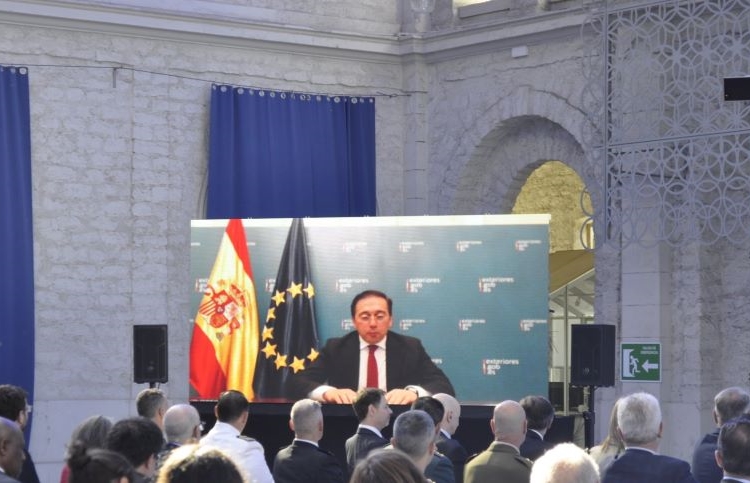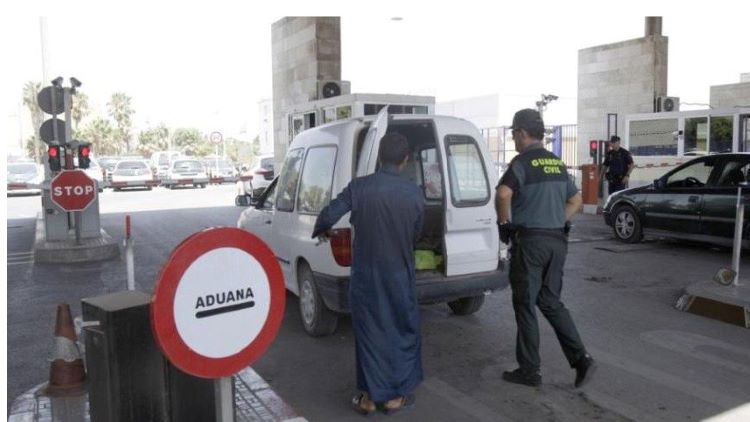The Diplomat
The Minister of Foreign Affairs, José Manuel Albares, declared yesterday that Finland’s application to join NATO reveals that, after the Russian invasion, “not only the integrity and sovereignty of Ukraine are at stake, but also the peace and prosperity of Europe”. He also recalled that any decision on the matter will have to be taken during the next NATO Summit, scheduled for the end of June in Madrid.
“A few minutes ago we just heard the news that the Government of Finland is applying to join NATO and it will be in Madrid when the decision will be taken”, said Albares during his participation by videoconference in the conference NATO and the Southern Flank: The Sahel and the Mediterranean, held at the headquarters of Casa Mediterráneo in Alicante.
The decision of Finland, which shares 1,300 kilometers of border with Russia and has historically been characterized by a strict neutrality, reveals that the Russian aggression against Ukraine “has catalyzed the will of access to the organization of countries that were traditionally neutral or even maintained a permanent pacifism, as is the case of Finland”. “This is because at this moment we all feel that not only the integrity and sovereignty of Ukraine is at stake, which is already a lot, but also the project of peace, progress and prosperity that the EU and NATO embody,” he continued.
On April 28th, Albares declared in Helsinki, during a joint press conference with the Finnish Foreign Minister, Pekka Haavisto, that “for Spain, Finland is a consolidated democracy and, therefore, it is normal that Finland has a place in NATO, which is an alliance of democracies”. He also recalled that “Finland is a member of the EU, like Spain, and is therefore covered by the mutual assistance clause provided for in Article 42 of the EU Lisbon Treaty”. “For that reason, it would be nothing new for Spain to have Finland in the NATO family, because we are already prepared to show the same solidarity that we have within the European family,” he added.
Albares also stated yesterday that the Madrid Summit should “produce a forceful and firm response to the challenges not only from Russia, but also from the Southern Flank“, especially the Sahel region, which “is going through critical times because, in addition to ethnic conflicts, there is the terrorist threat and an economic crisis that is beginning to be endemic”. “The threats from the east are growing, but the threats from the south are also the threats from Russia in the south”, because Vladimir Putin’s regime “is also present in the south”. In this regard, he recalled that, during the meeting of the Global Coalition against Daesh, held this week in Marrakech, it was reported “how Russian military influence has grown in that area.” “The use of energy supplies to blackmail NATO countries can happen tomorrow on the Southern Flank,” he warned.
President Sauli Niinistö and Finnish Prime Minister Sanna Marin expressed their support for NATO membership “as soon as possible” in a statement yesterday. As usual, the Russian government responded to this announcement by assuring that Finland’s entry into NATO would be met with “retaliatory military-technical and other reprisals.” The process of NATO membership is much faster than that of the EU and could be completed within approximately four months. It requires the unanimous support of the Alliance’s 30 members, following ratification in the parliaments of all member states. Initial support from governments is almost a given, but the parliamentary process appears to be a more complicated hurdle. Although Finland is not a member of NATO, it has been part of the Alliance’s group of partners since 2014.







